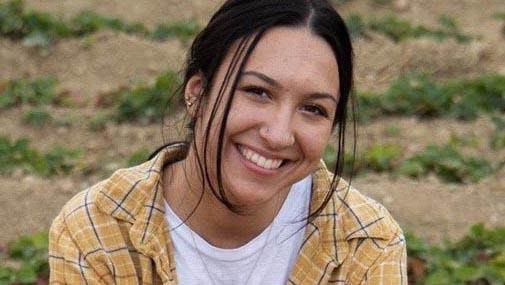Shared academic and extracurricular interests help two students connect.
Alexandra Lizzi remembers what it was like to be a first-year college student.
“I felt lost,” she said, noting that as the oldest of three sisters, she didn’t have an older sibling to turn to for advice and it was difficult to summon the courage to ask upper-level students for help.
Now a senior criminal justice major, Lizzi knows the Cal U campus well — where buildings are, how to schedule classes and how to access resources. She shares that knowledge with incoming students as a peer mentor. Her goal is to be that person her protégés can turn to with questions, even after she’s no longer officially their mentor.
“I’d be scared to walk up to a random senior and ask where this building is,” Lizzi said. “No one should feel this fear. They can just text me.”
Last semester, Lizzi mentored Paige Carrabbia, a first-year psychology major. The two shared academic interests and are both on the cheerleading team.
“I was surprised by how well I was matched with Alex just based off a few questions,” Carrabbia said. “I truly couldn’t have been matched with a better mentor.”
“We hit it off immediately,” Carrabbia added. “She was ready to help and gave me a very warm welcome, which made me feel comfortable to always look to her when I needed help or simply just needed someone to talk to every day.”
The two connected for the first time in late summer. At first, they talked about campus — the best places to eat, what to wear on the first day of class.
Then, as the University shifted to remote operations, Lizzi helped Carrabbia navigate the school’s online learning and information management systems. Throughout the semester, Lizzi also helped Carrabbia figure out what classes to take, schedule them and get the books she needed.
Carrabbia said she benefited from Lizzi’s personal experience as she figured things out.
This was the fourth time Lizzi has served as a peer mentor. However, because she couldn’t meet with Carrabbia in person, this experience looked a bit different than Lizzi’s past matches.
“I used to meet up with them sometimes and physically show them how to schedule classes. Now I have to go on my phone and record videos,” Lizzi said.
The approach has worked well. “I was still able to answer her questions and show her how to do different things by showing her videos or pictures,” Lizzi explained.
As they look ahead to the spring semester, Lizzi has already told Carrabbia that she can continue to come to her with questions, even after Lizzi graduates in May.


